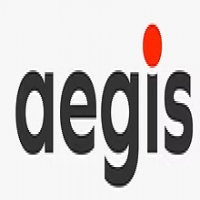Top Extension of Time (EOT) Claims and FIDIC Contract Training with AegisPMC

In the construction industry, managing time and resources efficiently is crucial for the successful completion of projects. However, delays are a common challenge faced by contractors, and managing these delays effectively is vital for ensuring that projects are completed on time and within budget. One of the key aspects of handling delays is submitting Extension of Time (EOT) claims. Alongside this, understanding how to navigate FIDIC contracts—a globally recognized standard for construction projects—is equally important. AegisPMC offers specialized training to help professionals master both EOT claims and FIDIC contracts training, enabling them to manage construction projects more efficiently.
What is an Extension of Time (EOT) Claim?
An Extension of Time (EOT) claim is a request made by a contractor or subcontractor to extend the completion date of a project due to unforeseen delays that are outside of their control. These delays can be caused by a variety of factors, such as adverse weather conditions, changes in the scope of work, late delivery of materials, or disruptions in labor supply.
When a delay occurs, contractors may find themselves facing penalties for not completing the work within the agreed timeframe. EOT claims are a vital mechanism for ensuring that contractors are not unfairly penalized for delays that were beyond their control. These claims allow for an extension of the completion date, preventing the contractor from being penalized while also providing a clear understanding of how long the delay will affect the project.
An EOT claim is essential for project success, especially for large and complex projects where delays are often inevitable. Without a clear process for requesting EOTs, contractors may face disputes, legal battles, or financial losses. Therefore, it is crucial to know the correct way to file and manage EOT claims.
Why is Managing EOT Claims Important?
Effectively managing Extension of Time (EOT) claims is crucial for maintaining the smooth progress of construction projects. Some of the key reasons why EOT claims matter include:
Avoiding Penalties for Delays: Failing to meet the contract completion date can result in financial penalties for contractors. EOT claims provide contractors with a legitimate way to request an extension to the completion date, helping to avoid these penalties.
Preserving Professional Relationships: By handling delays professionally and transparently through EOT claims, contractors can maintain positive relationships with clients and other stakeholders. Open communication and clear documentation of delays can prevent misunderstandings and protect the long-term reputation of the contractor.
Financial Protection: In addition to extending the project completion date, EOT claims can help contractors claim compensation for additional costs incurred as a result of delays. These costs may include extended labor hours, equipment hire, or increased material prices.
Minimizing Disputes: If delays occur, EOT claims provide a formal, structured approach to documenting the issue and requesting extensions. This reduces the chances of disputes and helps prevent legal conflicts, ensuring that all parties are clear on the project timeline.
The Role of FIDIC Contracts in Construction Projects
FIDIC contracts are widely used in the construction industry and are recognized globally for their balanced approach to project management. These contracts provide a clear framework for managing relationships between contractors, clients, and other stakeholders. FIDIC contracts cover essential aspects of construction projects, such as:
Project scope and obligations
Risk allocation
Dispute resolution
Payment terms
Project completion timelines
There are different types of FIDIC contracts, with the most common being:
Red Book: Typically used for projects where the employer provides the design, and the contractor is responsible for the construction.
Yellow Book: Used for projects where the contractor is responsible for both design and construction.
Silver Book: A turnkey contract that places responsibility for design, construction, and performance on the contractor, usually for fixed-price projects.
FIDIC Contracts and EOT Claims
FIDIC contracts are structured to address the issue of delays and EOT claims explicitly. Under the FIDIC framework, contractors must follow specific procedures when requesting an extension of time. These procedures ensure that the process is transparent, fair, and well-documented. Some key elements of EOT claims within FIDIC contracts include:
Notification of Delay: Contractors must notify the client (or employer) of delays promptly and within a stipulated timeframe as outlined in the contract. The notification should detail the cause of the delay, its potential impact on the project timeline, and the contractor’s proposed solution.
Detailed Documentation: FIDIC contracts require contractors to document delays in a thorough and organized manner. This documentation might include project schedules, photographs, weather reports, or any other relevant evidence that supports the claim.
Assessment of Delay Impact: Once the cause of the delay has been identified and documented, the contractor needs to assess how much additional time will be required to complete the project. This includes recalculating the project schedule to reflect the new completion date.
Dispute Resolution: If there are disagreements between the contractor and the employer regarding the EOT claim, FIDIC contracts provide a clear process for resolving disputes. This process may involve negotiation, mediation, or arbitration, depending on the nature of the disagreement.
How AegisPMC Can Help: FIDIC Contract Training and EOT Claims Management
AegisPMC offers specialized training programs in FIDIC contract management and EOT claims handling to help construction professionals master the skills needed to navigate these essential aspects of project management.
1. Comprehensive FIDIC Contract Training
AegisPMC’s FIDIC Contract Training covers all the essential components of FIDIC contracts, focusing on how to manage the contract lifecycle—from the initial agreement to project completion. Professionals will gain a deep understanding of FIDIC’s core principles, such as risk allocation, performance guarantees, and dispute resolution. This knowledge is crucial for ensuring that construction projects proceed smoothly and that all parties are aligned in terms of expectations and responsibilities.
2. Practical Training in EOT Claims
AegisPMC also offers targeted training on how to manage EOT claims effectively. This training covers the procedural aspects of submitting EOT claims under FIDIC contracts, including:
Understanding the clauses related to time extensions
Properly documenting delays
Calculating the impact of delays on the project schedule
Communicating and negotiating with clients regarding the extension
Handling disputes related to EOT claims
By participating in this training, professionals will be equipped with the skills and knowledge required to submit well-supported and justified EOT claims, minimizing the risk of disputes and ensuring fair compensation for delays.
3. Dispute Resolution Techniques
EOT claims often lead to disputes, which can significantly impact the project timeline and budget. AegisPMC’s training includes a comprehensive module on dispute resolution, covering techniques such as negotiation, mediation, and arbitration. These skills are essential for managing conflicts professionally and ensuring that projects stay on course, even when delays occur.
Why Choose AegisPMC for FIDIC and EOT Claims Training?
Expert Instructors: AegisPMC’s instructors are experienced professionals with real-world expertise in FIDIC contracts and construction claims management. Their insights and guidance will help participants navigate complex contract terms and claims processes.
Practical, Hands-On Learning: AegisPMC’s training goes beyond theory, providing practical case studies, exercises, and real-life examples to ensure participants can apply what they’ve learned on the job.
Career Advancement: Completing AegisPMC’s FIDIC Contract and EOT Claims Training will enhance your skills, making you more valuable to employers and opening doors to career advancement in construction project management.
Conclusion
Managing EOT claims and navigating FIDIC contracts are critical skills for construction professionals. By understanding the principles and procedures associated with these aspects of project management, contractors and project managers can protect their projects from delays, avoid penalties, and foster positive relationships with clients.
AegisPMC offers high-quality training programs that provide professionals with the knowledge and practical tools needed to excel in managing EOT claims and handling FIDIC contracts. With this
Note: IndiBlogHub features both user-submitted and editorial content. We do not verify third-party contributions. Read our Disclaimer and Privacy Policyfor details.





